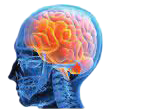Your Amazing Aging Brain: How It Changes and Thrives Over Time
Our brains evolve remarkably throughout life, adapting and developing new capabilities even as certain functions change. Modern neuroscience reveals that the aging brain remains far more resilient and dynamic than previously believed.
As your brain matures, it actually gets better at many important things. One of the biggest strengths that comes with age is the ability to recognize patterns. With years of experience to draw from, decision-making often improves, especially in real-life situations that require careful thought. You also tend to get better at managing your emotions, and problem-solving becomes more effective because you’ve faced and learned from a wide range of challenges.
Your knowledge and use of language also continue to grow. Even if you occasionally struggle to find the right word, your overall language skills stay strong. In fact, your vocabulary usually keeps expanding well into your 70s, and your general knowledge increases over time. Many people also find that their storytelling skills improve—they become better at sharing ideas and experiences in ways that are thoughtful, clear, and meaningful. These strengths are a natural part of the brain’s evolution and a reminder that aging brings valuable mental abilities.
The Brain’s Lifelong Ability to Adapt and Thrive
As we age, the brain doesn’t simply decline—it adapts in remarkable and intelligent ways. For example, older adults often engage both hemispheres of the brain to complete tasks that younger individuals typically perform using just one side. This bilateral activation helps maintain cognitive performance and shows how the brain compensates for changes in efficiency. When established neural pathways become less effective, the brain can create alternative routes to achieve the same outcomes. Interestingly, this process can lead to more creative and flexible problem-solving approaches.
These changes are possible thanks to neuroplasticity, the brain’s lifelong ability to reorganize and form new connections. Contrary to the outdated belief that brain development stops in early adulthood, research now confirms that the brain continues to grow and change throughout life. New neural connections form in response to learning, while different brain regions can take on new roles when needed. This means that mental stimulation—whether through learning new skills, engaging in conversation, or tackling complex problems—continues to strengthen the brain regardless of age. With the right stimulation, the aging brain doesn’t just endure; it evolves, adapts, and continues to thrive.
Common Cognitive Changes You Might Notice
As people age, it’s common to notice shifts in how the brain processes information. One of the most noticeable changes is a decrease in processing speed. Tasks that require quick reactions—such as making split-second decisions or rapidly switching between activities—may take longer to complete. Multitasking also tends to become more difficult, as the brain needs more time to shift focus between different tasks. However, the brain often compensates for these changes by relying on a deeper well of life experience and knowledge, allowing older adults to approach problems with greater insight and efficiency.
Memory can also change in subtle ways with age, depending on the type. Working memory—the ability to hold and manipulate information over short periods—may decline slightly, making it harder to juggle multiple bits of information at once. Episodic memory, which involves recalling specific events or details from the past, often requires more focus and effort as we grow older. In contrast, procedural memory—the type that helps us remember how to perform familiar tasks like riding a bike or typing—tends to remain strong and stable. These changes are a normal part of aging and, in many cases, can be managed through mental engagement, healthy habits, and supportive strategies.
Embracing How Your Brain Changes
Your brain changes as you go through life, and that’s a normal part of growing older. While you might notice that it takes more time to process information or remember certain things, you also gain something valuable—experience. With age comes better emotional control, stronger problem-solving skills, and the ability to recognize patterns more easily.
When you understand these changes and take care of your brain, you can keep it working well. Staying active, eating healthy, learning new things, and staying connected with others all help your brain stay strong. No matter your age, you can keep learning, growing, and enjoying life in meaningful ways.
About the Author: Dr. Susan Borgaro is a Clinical Neuropsychologist specializing in memory assessment and cognitive enhancement strategies. With over 25 years of experience working with patients across the lifespan, Dr. Borgaro brings both clinical expertise and practical insights to help people optimize their cognitive functioning. www.nasarizona.com

